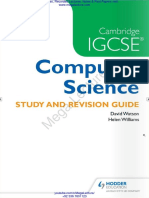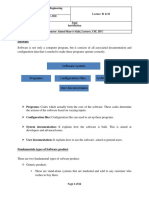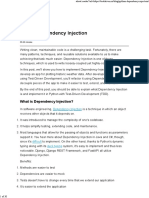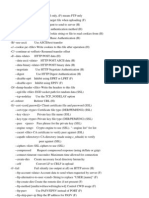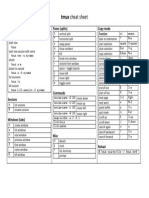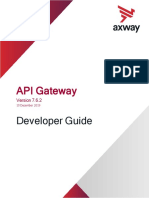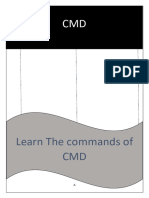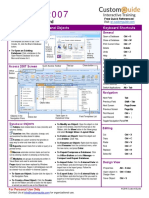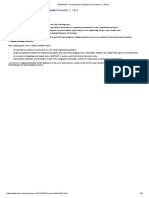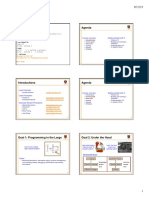0% found this document useful (0 votes)
263 views27 pagesCourse Intro
This document provides an introduction to the COMP1521 course taken at UNSW. It outlines the course staff, background knowledge expected of students, course goals, themes, systems and tools used, structure of lectures, tutorials, labs, tests and assignments. It discusses the textbook, emphasizes developing a deep understanding of how computer systems and software work, and covers the code of conduct including policies on plagiarism.
Uploaded by
John WuCopyright
© © All Rights Reserved
We take content rights seriously. If you suspect this is your content, claim it here.
Available Formats
Download as PDF, TXT or read online on Scribd
0% found this document useful (0 votes)
263 views27 pagesCourse Intro
This document provides an introduction to the COMP1521 course taken at UNSW. It outlines the course staff, background knowledge expected of students, course goals, themes, systems and tools used, structure of lectures, tutorials, labs, tests and assignments. It discusses the textbook, emphasizes developing a deep understanding of how computer systems and software work, and covers the code of conduct including policies on plagiarism.
Uploaded by
John WuCopyright
© © All Rights Reserved
We take content rights seriously. If you suspect this is your content, claim it here.
Available Formats
Download as PDF, TXT or read online on Scribd
/ 27











